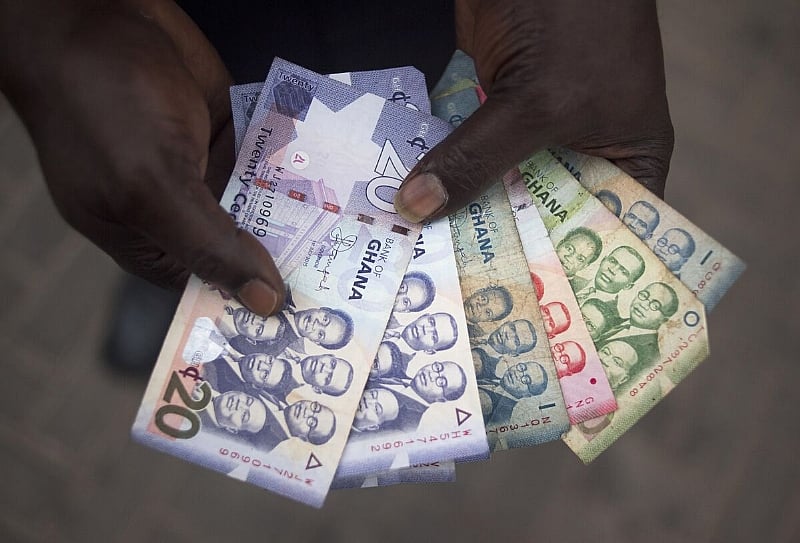The Ghanaian cedi experienced a slight depreciation against the United States dollar on Tuesday, January 14, 2025, continuing a trend of volatility in the currency market. Data from Cedirates.com, a reliable source for currency information in Ghana, indicated a decline of 5 pesewas in the buying rate and 6 pesewas in the selling rate compared to the previous day’s averages. Specifically, the cedi was trading at GHS14.79 for buying and GHS15.26 for selling at 10:00 am. This slight dip reflects the ongoing pressures on the Ghanaian currency amidst economic challenges and fluctuations in the global financial landscape. The forex bureaus, which often reflect market realities more readily, displayed a slightly weaker cedi, with buying and selling rates of GHS15.50 and GHS15.95, respectively. This difference highlights the varying rates offered across different segments of the currency exchange market.
The interbank market, where major financial institutions conduct currency transactions, presented a slightly stronger cedi compared to the overall market average. The buying rate stood at GHS14.79, while the selling rate was GHS14.81. This marginal difference suggests a more controlled environment within the interbank market compared to the open market reflected by forex bureaus. The Bank of Ghana, as the regulator of the financial system, plays a crucial role in stabilizing the cedi and managing exchange rate fluctuations. The interbank rates often serve as a benchmark for other market participants and influence overall currency trends.
The performance of the cedi against other major international currencies, namely the British Pound Sterling and the Euro, also experienced slight fluctuations. The average buying and selling rates for the British Pound were GHS17.92 and GHS18.58, respectively. Similarly, the Euro traded at GHS14.97 for buying and GHS15.60 for selling. These rates reflect the interplay of various economic factors, including international trade dynamics, investor sentiment, and overall market conditions. The interbank rates for these currencies, as reported by the Bank of Ghana, showed the Pound selling at GHS18.02 and the Euro at GHS15.12.
Remittance services, playing a significant role in Ghana’s economy, offered competitive exchange rates for individuals sending money from abroad. LemFi and Afriex, two prominent money transfer platforms, provided attractive rates for transfers from the US and the UK. For US dollar transfers, LemFi offered GHS14.75 per dollar, while Afriex provided GHS14.69. For British Pound transfers, both platforms offered GHS18.00 for buying and GHS18.75 for selling. Euro transfers through Afriex were priced at GHS15.30 per euro, while LemFi offered GHS15.14. These competitive rates are crucial for maximizing the value of remittances sent to Ghana, supporting families and contributing to the overall economy.
The rates for online subscriptions further illustrate the prevailing exchange rates for international transactions. For those renewing subscriptions to services like Netflix, Spotify, or Apple Music using Visa or Mastercard, the US dollar exchange rate stood at GHS15.89. This rate, applied to dollar-denominated subscriptions, impacts the cost incurred by Ghanaian subscribers. The fluctuations in the cedi’s value against major international currencies underscore the importance of monitoring exchange rates and their impact on various financial transactions.
Overall, the Ghanaian cedi’s performance on January 14, 2025, reflected continued volatility in the foreign exchange market. The slight depreciations against the US dollar, British Pound, and Euro highlight the ongoing economic challenges and the interplay of global financial factors. The varying rates across different market segments, including forex bureaus, interbank markets, and remittance services, underscore the dynamic nature of currency exchange and the importance of accessing reliable information for informed financial decisions. The rates for online subscriptions further emphasize the impact of exchange rate fluctuations on everyday transactions for Ghanaian consumers. Monitoring these trends is crucial for individuals, businesses, and policymakers to navigate the evolving economic landscape and mitigate potential risks.


